- Clone
- QA18A72 (See other available formats)
- Regulatory Status
- RUO
- Other Names
- αX integrin, integrin αX chain, CR4, p150, ITGAX
- Isotype
- Rat IgG1, κ
- Ave. Rating
- Submit a Review
- Product Citations
- publications
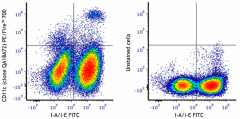
-

C57BL/6 mouse splenocytes were stained with anti-mouse I-A/I-E FITC and anti-mouse CD11c recombinant (clone QA18A72) PE/Fire™ 700 (left) or stained with anti-mouse I-A/I-E FITC only.
| Cat # | Size | Price | Quantity Check Availability | Save | ||
|---|---|---|---|---|---|---|
| 161107 | 25 µg | £109 | ||||
| 161108 | 100 µg | £289 | ||||
CD11c is a 150 kD glycoprotein also known as αX integrin, CR4, and p150. CD11c forms a αXβ2 heterodimer with β2 integrin (CD18). It is primarily expressed on dendritic cells, NK cells, a subset of intestinal intraepithelial lymphocytes (IEL), and some activated T cells. The αXβ2 integrin plays an important role in cell-cell contact by binding its ligands: iC3b, fibrinogen, and CD54.
Product DetailsProduct Details
- Verified Reactivity
- Mouse
- Antibody Type
- Recombinant
- Host Species
- Rat
- Formulation
- Phosphate-buffered solution, pH 7.2, containing 0.09% sodium azide
- Preparation
- The antibody was purified by affinity chromatography and conjugated with PE/Fire™ 700 under optimal conditions.
- Concentration
- 0.2 mg/mL
- Storage & Handling
- The antibody solution should be stored undiluted between 2°C and 8°C, and protected from prolonged exposure to light. Do not freeze.
- Application
-
FC - Quality tested
- Recommended Usage
-
Each lot of this antibody is quality control tested by immunofluorescent staining with flow cytometric analysis. For flow cytometric staining, the suggested use of this reagent is ≤ 0.5 µg per million cells in 100 µL volume. It is recommended that the reagent be titrated for optimal performance for each application.
* PE/Fire™ 700 has a maximum excitation of 565 nm and a maximum emission of 695 nm. - Excitation Laser
-
Blue Laser (488 nm)
Green Laser (532 nm)/Yellow-Green Laser (561 nm)
- RRID
-
AB_2927995 (BioLegend Cat. No. 161107)
AB_2927995 (BioLegend Cat. No. 161108)
Antigen Details
- Structure
- Integrin α-chain, associates with integrin β2 (CD18), 150 kD
- Distribution
-
Dendritic cells, NK cells, intestinal intraepithelial lymphocytes (IEL), some activated T cells
- Function
- Cellular adhesion
- Ligand/Receptor
- iC3b, fibrinogen
- Cell Type
- Dendritic cells, Epithelial cells, NK cells, T cells, Tregs
- Biology Area
- Cell Adhesion, Cell Biology, Costimulatory Molecules, Immunology, Innate Immunity, Neuroscience, Neuroscience Cell Markers
- Molecular Family
- Adhesion Molecules, CD Molecules
- Antigen References
-
1. Barclay A, et al. 1997. The Leukocyte Antigen Facts Book Academic Press.
2. Springer TA. 1994. Cell 76:301.
3. Lopez-Rodriguez C, et al. 1996. J. Immunol. 156:3780. - Gene ID
- 16411 View all products for this Gene ID
- UniProt
- View information about CD11c on UniProt.org
Related FAQs
Other Formats
View All Reagents Request Custom Conjugation| Description | Clone | Applications |
|---|---|---|
| Purified anti-mouse CD11c Recombinant Antibody | QA18A72 | FC |
| PE/Fire™ 640 anti-mouse CD11c Recombinant Antibody | QA18A72 | FC |
| PE/Fire™ 810 anti-mouse CD11c Recombinant Antibody | QA18A72 | FC |
| PE/Fire™ 700 anti-mouse CD11c Recombinant Antibody | QA18A72 | FC |
| PerCP/Fire™ 806 anti-mouse CD11c Recombinant Antibody | QA18A72 | FC |
Customers Also Purchased
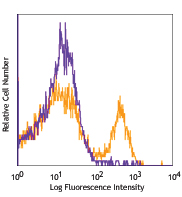
Compare Data Across All Formats
This data display is provided for general comparisons between formats.
Your actual data may vary due to variations in samples, target cells, instruments and their settings, staining conditions, and other factors.
If you need assistance with selecting the best format contact our expert technical support team.
-
Purified anti-mouse CD11c Recombinant Antibody

C57BL/6 mouse splenocytes were stained with anti-mouse I-A/I... -
PE/Fire™ 640 anti-mouse CD11c Recombinant Antibody

C57BL/6 mouse splenocytes were stained with anti-mouse I-A/I... -
PE/Fire™ 810 anti-mouse CD11c Recombinant Antibody

C57BL/6 mouse splenocytes were stained with anti-mouse I-A/I... -
PE/Fire™ 700 anti-mouse CD11c Recombinant Antibody

C57BL/6 mouse splenocytes were stained with anti-mouse I-A/I... -
PerCP/Fire™ 806 anti-mouse CD11c Recombinant Antibody

C57BL/6 mouse splenocytes were stained with anti-mouse I-A/I...
 Login / Register
Login / Register 











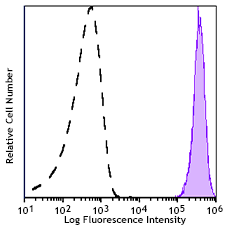
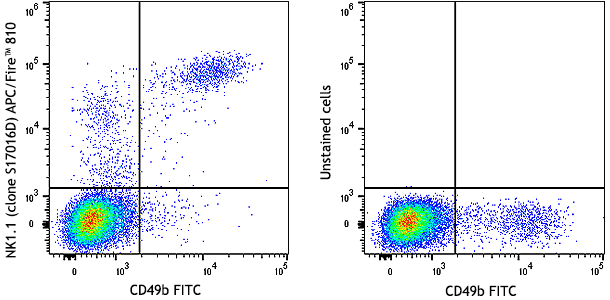
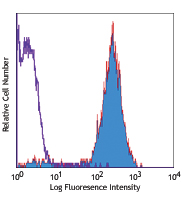



Follow Us